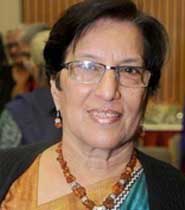Epilepsy surgery IN INDIA
Epilepsy is one of the most common neurological disorders, characterized by recurrent seizures caused by abnormal electrical activity in the brain. This disorder can affect people of all ages and backgrounds, often disrupting daily life and posing significant challenges for patients and their families. Despite the challenges it presents, the majority of people with epilepsy can lead productive lives with the right treatment and care.
India has become a hub for the treatment of neurological disorders, including epilepsy, due to its highly advanced medical facilities, skilled healthcare professionals, and affordable treatment options. In recent years, the country has seen significant progress in the diagnosis and management of epilepsy, with both medical and surgical treatments offering hope to millions of patients. This article will explore the causes, treatment methods, costs, and factors influencing epilepsy treatment in India, along with why it has become a go-to destination for epilepsy care.
Introduction
Epilepsy is a neurological disorder that affects millions of people worldwide, including a significant portion of the population in India. Characterized by recurrent seizures, epilepsy can occur due to a variety of reasons, such as brain injuries, genetic factors, or other medical conditions. The impact of epilepsy on a person’s life can be profound, affecting their ability to work, study, and engage in daily activities. However, with the right medical care and treatment, many individuals with epilepsy can manage their condition effectively and lead fulfilling lives.
India has become a leading destination for epilepsy treatment, offering cutting-edge medical technology, skilled neurologists, and affordable healthcare options. The country has a well-established network of hospitals and specialists who are equipped to provide comprehensive care, from medication management to advanced surgical procedures.
Why Epilepsy Occurs: Causes and Risk Factors
Epilepsy can occur due to a variety of reasons, some of which are well-understood, while others are still being researched. Common causes include:
- Genetics: In many cases, epilepsy can run in families, indicating a genetic predisposition. Certain genetic mutations can make individuals more prone to developing epilepsy.
- Brain Injuries: Traumatic brain injuries, often resulting from accidents or falls, can trigger epilepsy. Even minor brain injuries can lead to the development of seizures over time.
- Stroke: A stroke can disrupt normal brain function, leading to epileptic seizures. People who have suffered strokes are at an increased risk of developing epilepsy later in life.
- Infections: Infections like meningitis, encephalitis, and neurocysticercosis can cause inflammation in the brain, which may result in epilepsy.
- Brain Tumors: Abnormal growths in the brain can interfere with its normal electrical activity, leading to seizures.
- Developmental Disorders: Conditions such as autism and neurofibromatosis can also cause epilepsy in some cases.
- Other Factors: Conditions such as sleep deprivation, drug use, and hormonal imbalances can sometimes trigger seizures in individuals predisposed to epilepsy.
Statistics on Epilepsy in India
Epilepsy is a significant public health concern in India, with an estimated 12 million people affected by the disorder. It is one of the most prevalent neurological conditions, and India has one of the highest rates of epilepsy worldwide. According to the World Health Organization (WHO), approximately 1 in 100 people in India are diagnosed with epilepsy, with a higher prevalence in rural areas compared to urban regions.
Furthermore, it is estimated that around 50% of people with epilepsy in India do not receive proper treatment due to various factors, including a lack of awareness, stigma, and inadequate healthcare facilities in rural areas. Despite these challenges, advancements in medical care, education, and research are gradually improving the outlook for those living with epilepsy.
How Epilepsy is Treated
Epilepsy treatment typically involves a combination of medication, lifestyle changes, and, in some cases, surgery. The main goals of epilepsy treatment are to control seizures, improve quality of life, and help patients manage the condition effectively.
Medications for Epilepsy
- Antiepileptic Drugs (AEDs): These are the cornerstone of epilepsy treatment. There are numerous types of AEDs available, and the choice of medication depends on the type of seizures the patient experiences, their age, and overall health. Common AEDs include:
-
- Phenytoin
- Carbamazepine
- Valproic Acid
- Lamotrigine
- Levetiracetam
The effectiveness of AEDs can vary from person to person, and finding the right medication may involve trial and error. Additionally, side effects such as dizziness, fatigue, and weight gain can occur, which may require adjustments in treatment.
Surgical Treatment for Epilepsy
When medications do not adequately control seizures, or when side effects are intolerable, surgery may be considered. Surgical options for epilepsy treatment include:
- Resective Surgery: Involves removing the part of the brain that is responsible for seizures.
- Laser Ablation: A minimally invasive procedure that uses lasers to destroy seizure-producing tissue in the brain.
- Vagus Nerve Stimulation (VNS): A device implanted under the skin that sends electrical signals to the brain via the vagus nerve, helping to reduce seizures.
- Responsive Neurostimulation (RNS): A neurostimulator device that detects and responds to abnormal brain activity, delivering electrical pulses to prevent seizures.
These surgeries can be life-changing for patients who do not respond to medications.
Lifestyle and Dietary Changes
In addition to medications and surgery, lifestyle changes can play an important role in managing epilepsy. These include:
- Avoiding Seizure Triggers: Common triggers include lack of sleep, stress, and alcohol consumption.
- Ketogenic Diet: A high-fat, low-carbohydrate diet that has been shown to reduce seizures in some patients, especially children with epilepsy.
- Regular Exercise: Physical activity can help reduce stress and improve overall health, which may reduce seizure frequency.
What are the Costs of Epilepsy Treatment in India
The cost of epilepsy treatment in India varies depending on the treatment method and the hospital or clinic providing care. Below is a general estimate of treatment costs in India, both in INR (Indian Rupees) and USD:
Factors Affecting Epilepsy Treatment Costs
| Treatment Type | Cost in INR | Cost in USD |
| Initial Consultation (Neurologist) | ₹500 – ₹2,000 | $6 – $25 |
| Medication (per month) | ₹1,000 – ₹5,000 | $12 – $60 |
| Surgical Treatment (Resection) | ₹4,00,000 – ₹10,00,000 | $5,000 – $12,000 |
| Deep Brain Stimulation (DBS) | ₹7,00,000 – ₹12,00,000 | $8,500 – $15,000 |
| Vagus Nerve Stimulation (VNS) | ₹4,00,000 – ₹8,00,000 | $5,000 – $10,000 |
| Laser Surgery for Epilepsy | ₹2,00,000 – ₹5,00,000 | $2,500 – $6,000 |
What are the several factors that can influence the cost of epilepsy treatment in India?
The factors that can influence the cost of treatment are:
- Hospital Location: Hospitals in major cities like Delhi, Mumbai, and Bangalore may charge higher fees compared to smaller cities or rural areas.
- Type of Treatment: Surgical treatments like Deep Brain Stimulation (DBS) or Vagus Nerve Stimulation (VNS) tend to be more expensive than traditional medications or outpatient consultations.
- Duration of Treatment: Ongoing costs for epilepsy medications and follow-up care can add up over time.
- Healthcare Facility: The reputation and level of care provided by the hospital can impact treatment costs. Internationally recognized hospitals may charge higher fees for their advanced medical services.
Patient’s Health Condition: The severity of the condition and the need for specialized care can influence the total cost of treatment.
Why Choose Al Afiya for Epilepsy Treatment
Al Afiya Healthcare is known for providing comprehensive, world-class epilepsy treatment in India. Here are a few reasons why you should consider Al Afiya for your epilepsy care:
- Expert Neurologists: Al Afiya boasts a team of highly skilled neurologists and epileptologists with extensive experience in managing all types of epilepsy.
- Cutting-Edge Technology: The hospital is equipped with the latest diagnostic and surgical equipment to provide accurate diagnoses and effective treatment plans.
- Affordable Care: Al Afiya offers competitive prices for both consultation and advanced treatments, making it an attractive option for patients seeking high-quality care at affordable rates.
- Comprehensive Services: From medications and lifestyle counseling to advanced surgical treatments like DBS and VNS, Al Afiya offers a wide range of services tailored to the specific needs of each patient.
Personalized Treatment Plans: The hospital offers personalized care, ensuring that every patient receives treatment that is customized to their individual health needs.
What are the Pre and Post Procedure Considerations?
Pre-Procedure Considerations
Before undergoing any treatment for epilepsy, patients must undergo a thorough medical evaluation. This typically involves:
- Neurological Assessment: A detailed examination of the patient’s medical history and seizure patterns.
- Diagnostic Tests: Including EEG (electroencephalogram), MRI, or CT scans to assess brain activity and identify the cause of seizures.
Blood Tests: To check for underlying conditions that may contribute to epilepsy.
Post-Procedure Considerations
After surgery or a new treatment plan, patients need to follow a strict post-procedure care routine:
- Medication Management: Patients may need to adjust their antiepileptic medications to prevent complications.
- Follow-Up Visits: Regular follow-up with the neurologist to monitor progress and make adjustments to treatment.
Rehabilitation: For patients undergoing surgery, rehabilitation therapies, including physiotherapy, may be recommended.
Top Epilepsy surgery Doctors in India
The right doctor to consult for a Epilepsy surgery case.
Dr. Manvir Bhatia
Year of experience: 23 Years of Experience
Dr. Praveen Gupta
Year of experience: 15 Years of Experience
Dr. Rana Patir
Year of experience: 32
Consultant at Fortis Memorial Research Institute, Gurgaon
Dr. Rohan Sinha
Year of experience: 16 years of experience
Director & Senior Consultant at Jaypee Hospital
Dr. Sandeep Vaishya
Year of experience: 36
HOD and Senior Consultant at Fortis Memorial Research Institute, Gurgaon
Dr. Sudheer Kumar Tyagi
Year of experience: 38
Senior Consultant at Indraprastha Apollo Hospital, Delhi
Dr. Sumit Singh
Year of experience: 25
Chief and Senior Consultant at Artemis Hospital
Dr. Veena Kalra
Year of experience: 37 Years of Experience
Dr. Vikas Gupta
Year of experience: 31 years of experience
Looking For The Best Doctor & Hospital?
Fill up the form and get assured assitance within 24 hrs!
FAQs
- What are the top hospitals for epilepsy treatment in India?
Some of the best hospitals for epilepsy treatment in India include:
- All India Institute of Medical Sciences (AIIMS), New Delhi
- NIMHANS (National Institute of Mental Health and Neurosciences), Bangalore
- Fortis Healthcare (Multiple Locations)
- Medanta – The Medicity, Gurgaon
- Apollo Hospitals, Chennai
- Max Super Speciality Hospital, Delhi
- BLK Super Speciality Hospital, New Delhi
- Who are the best doctors for epilepsy treatment in India?
Some renowned epileptologists and neurologists in India include:
- Dr. A. K. Sethi (Neurologist, New Delhi)
- Dr. K. K. Sethi (Epileptologist, New Delhi)
- Dr. Shubham Daga (Neurologist, Medanta Hospital)
- Dr. R. S. Agarwal (Neurologist, AIIMS)
- Dr. V. R. Talyarkhan (Neurologist, Mumbai)
- Dr. R. R. Sharma (Consultant Epileptologist, Delhi)
- What types of treatments are available for epilepsy in India?
The main treatment options for epilepsy in India include:
- Antiepileptic drugs (AEDs) to control seizures.
- Surgical treatments for patients who don’t respond to medications (e.g., resective surgery, vagus nerve stimulation, or deep brain stimulation).
- Ketogenic diet therapy for children with epilepsy.
- Lifestyle management to reduce seizure triggers and improve overall health.
- What is the cost of epilepsy treatment in India?
The cost of epilepsy treatment in India varies depending on the type of treatment and the hospital. Here’s a general breakdown:
- Consultation Fees: ₹500 – ₹2,000 ($6 – $25 USD)
- Medication (per month): ₹1,000 – ₹5,000 ($12 – $60 USD)
- Surgical Procedures: ₹4,00,000 – ₹10,00,000 ($5,000 – $12,000 USD)
- How does surgery for epilepsy work?
Epilepsy surgery is an option for patients whose seizures are not controlled by medications. Surgical options may include:
- Resective Surgery: Removal of brain tissue that causes seizures.
- Laser Ablation: A minimally invasive technique to remove or destroy seizure-producing tissue.
- Vagus Nerve Stimulation (VNS): Implantation of a device that sends electrical impulses to the brain to reduce seizures.
- Is epilepsy treatment in India affordable compared to other countries?
Yes, epilepsy treatment in India is highly affordable compared to many Western countries. For example, surgeries like Deep Brain Stimulation (DBS) or Vagus Nerve Stimulation (VNS) cost a fraction of what they would in countries like the US or the UK, making India an attractive destination for medical tourism.
- What factors affect the cost of epilepsy treatment in India?
Factors affecting the cost of epilepsy treatment include:
- Type of treatment (medications, surgery, or therapies).
- Hospital location (treatment costs in major cities may be higher).
- Hospital reputation and specialization (top hospitals may charge more for advanced care).
- Patient’s condition (complex cases may require more intensive care).
- How long does it take to recover from epilepsy surgery?
Recovery time after epilepsy surgery varies depending on the type of surgery. For resective surgery, the recovery period may range from 2 to 4 weeks. However, it may take several months for patients to fully adjust and experience the benefits of the procedure.
- Is it necessary to get epilepsy treatment at a specialized center?
Yes, it is important to seek treatment at a specialized center, especially for patients with drug-resistant epilepsy or complex cases. Specialized epilepsy centers are equipped with advanced diagnostic tools and a team of experts who can provide personalized care and treatment options.
- How can lifestyle changes help in managing epilepsy?
Lifestyle changes play a crucial role in managing epilepsy. Patients can:
- Avoid known seizure triggers such as lack of sleep or excessive stress.
- Follow a healthy diet, including a ketogenic diet if recommended.
- Regularly take prescribed medications as directed by their doctor.
- Engage in stress-reduction activities like yoga or meditation.
- Why should I choose India for epilepsy treatment?
India is considered a leading destination for epilepsy treatment due to its:
- Highly skilled doctors and specialists in neurology and epilepsy.
- Advanced medical technology available at affordable prices.
- Affordable treatment options compared to many Western countries.
- World-class hospitals with state-of-the-art facilities and internationally trained medical professionals.
Get FREE Evaluation
Treatment plan and quote within within 24 hrs!
Let us help you
Get your personalized Estimate Now
Top Doctors & Surgeons in India
Best Hospitals in India
Best Treatments in India
Indian Medical Visa From
Copyright © 2025 Al Afiya Medi Tour | All Rights Reserved.































